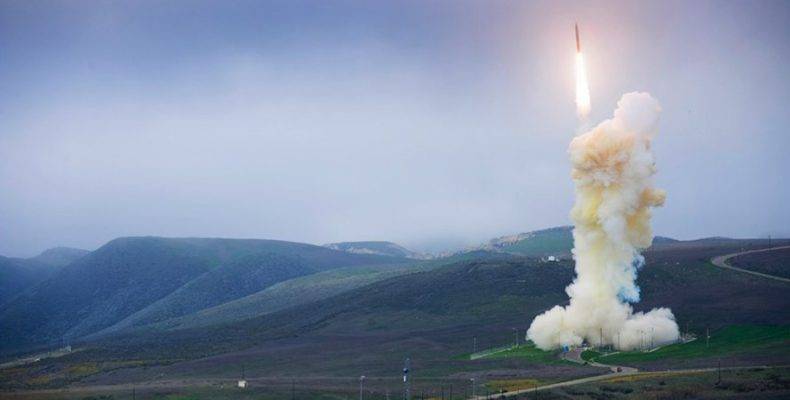The US Missile Defense Agency (MDA) has been extolling plans for a next-generation interceptor for the Ground-Based Midcourse Defense (GMD) systems, with the Undersecretary of Defense for Research and Engineering Mike Griffin pulling the plug on its updated Redesigned Kill Vehicle (RKV) last year, citing “technical design problems”.
The US Missile Defense Agency has released its request for proposal for its Next-Generation Interceptor (NGI), tasked with forming the core of the country’s homeland missile defence, reports Defense News.
The RFP, released on 24 April, says it allows contractors 90 days to provide proposals to the government beginning 1 May 2020.
With proposals due 31 July, the MDA allowed for a timetable review in light of the COVID-19 pandemic.
“MDA understands the concerns with releasing an RFP during the COVID-19 crisis and has been in communication with NGI prime offerors to assess their availability to receive and evaluate the RFP. As Departmental guidance changes, adjustments for COVID-19 may occur based on Real World Events”, said the RFP.
Eventually, two companies will be selected who will compete for the right to build the interceptor, according to the research, development, and acquisition agency that works on ballistic missile defence systems for the US.
Specifically for the NGI programme, the agency earlier requested $664.1 million in fiscal year 2021 as part of a $4.9 billion five-year budget plan.
Mark Wright, a spokesman for MDA, called the RFP “a vital step forward in designing, developing, and fielding the finest capabilities of both the DoD and American industry for the extraordinarily important purpose of defending the American homeland.”
Next Generation Missile Interceptor
The Next-Generation Interceptor (NGI) programme is set to fill the void after the Redesigned Kill Vehicle (RKV) program was cancelled by the Under Secretary of Defense (Research and Engineering) Dr. Michael Griffin on 14 August 2019.
The call to pull the plug on the multi-billion-dollar Boeing contract to develop a new ballistic missile interceptor was made due to the project being riddled with design issues.
“This decision supports our efforts to gain full value from every future taxpayer dollar spent on defense,” Griffin was cited as saying by Defense News.
At the time, critics of the decision to cancel RKV and start with a new design raised concerns over the possibly extended timeline beyond 2030.
In March, MDA head Vice Adm. Jon Hill allayed these concerns, saying that waiting that long is “unacceptable from a war fighter view”.
Hill added that after bidding by defence contractors has been made and a contract awarded, the agency will review the schedule and hold industry accountable to meet “all the wickets.”
U.S. #MissileDefense Agency (MDA) achieves successful intercept of an ICBM target using an upgraded GMD kill vehicle https://t.co/Bd1TkqrOTu pic.twitter.com/SRAuDTxPD8
— U.S. Indo-Pacific Command (@INDOPACOM) May 31, 2017
The RKV programme was expected to produce a replacement for the Pentagon’s Exoatmospheric Kill Vehicle on the Ground-Based Midcourse Defense (GMD) system’s interceptor, and would have been fitted onto approximately 64 future ground-based interceptors.
.@AerojetRdyne displays model of the exoatmospheric kill vehicle. Learn more #smdsymposium https://t.co/dVvGssYbAh pic.twitter.com/aOcLVvrRFI
— Missile Defense AA (@MissileDefAdv) August 17, 2016
However, unlike the RKV programme, which sought to replace the Kill Vehicle, the NGI programme will replace the entire GBI interceptor – the missiles that are part of the Ground-based Midcourse Defense (GMD) system.
The new contract could conceivably be split into several components.
While one would provide the NGI system itself, another would maintain older interceptors, a third – tackle the issue of ground systems, a fourth would join forces with the military to operate the GMD, and a fifth could deal with logistics and testing, according to Defense News.






